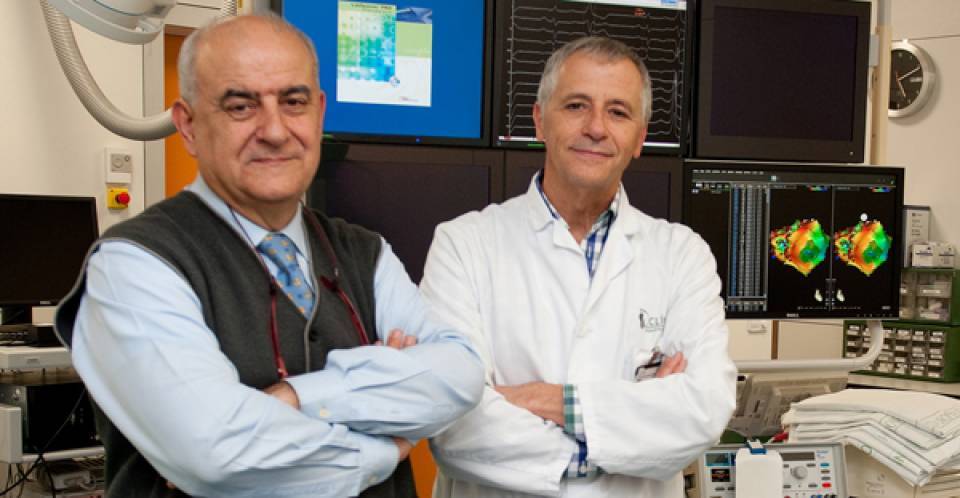Atrial fibrillation is the most common arrhythmia, affecting approximately 4% of people over 60 years. The probability of presenting this arrhythmia during their life in people over 40 years is 25% (1 in 4), and it is especially prevalent in people over 80 years (10%). This arrhythmia causes symptoms such as palpitations, and increases the risk of stroke and heart failure. Moreover, despite being well tolerated in treated chronic forms of arrhythmia, the risk of death is doubled compared to people of the same age.
Treatment with antiarrhythmic drugs to prevent recurrences has limited effectiveness and involves some risks. In the past 15 years, catheter ablation techniques to treat this arrhythmia have achieved a healing therapy in a proportion of individuals with short crisis. However, until now had there was not any available study specifically aimed at patients with the "persistent" form of the disease. This form represents a more advanced stage of disease, and therefore until the present work has been published there was not enough information on what was the best treatment for these patients.
Reference: Mont L, Bisbal F, Hernández-Madrid A, Pérez-Castellano N, Viñolas X, Arenal A, Arribas F, Fernández-Lozano I, Bodegas A, Cobos A, Matía R, Pérez-Villacastín J, Guerra JM, Avila P, López-Gil M, Castro V, Arana JI, Brugada J; on behalf of SARA investigators. Catheter ablation vs. antiarrhythmic drug treatment of persistent atrial fibrillation: a multicentre, randomized, controlled trial (SARA study). Eur Heart J. 2013 Oct 17. [Epub ahead of print] Read the article

